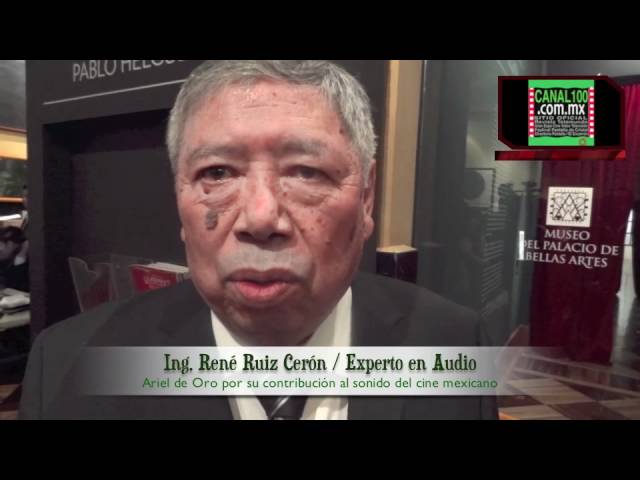José René Ruiz, affectionately known by his stage name “Tun Tun,” remains one of the most cherished figures in Mexican entertainment history. With his unique comedic flair and engaging screen presence, Tun Tun captivated audiences for over four decades. His legacy is built on the laughs and memories he created, both on and off the screen. At the heart of his success was his ability to connect with audiences through humor and heart, making him a beloved figure in the world of Mexican comedy and cinema.
Early Life and Background
José René Ruiz came into this world on November 22, 1932, in Tampico, Tamaulipas, Mexico. As a child, he faced many of the typical challenges that accompany a short stature, yet he always had a knack for turning potential setbacks into opportunities. Growing up in Mexico, he learned early on the power of humor and storytelling. These foundational experiences would later serve as the building blocks for his successful career in entertainment. Embracing his unique look and using it as a strength, Ruiz developed a distinct comedic style that would endear him to millions.
Rise of Tun Tun: From Childhood to Stardom
Transitioning from childhood dreams to thespian reality, José René Ruiz formally entered the entertainment industry in the early 1950s. He gained attention quickly with his vivacious energy and natural comedic timing. Taking on the stage name “Tun Tun,” and at times referred to as “El Enanito Tun-Tun,” he became a household name through a variety of roles. Audiences adored him for his uncanny ability to make them laugh while resonating with them on a personal level. His rise to stardom was largely defined by his resilience and his knack for conquering the hearts of viewers through humor.
Landmark Roles in Mexican Cinema
José René Ruiz, as Tun Tun, was more than just a comedian; he was an actor of remarkable depth. Over the years, he was involved in many films that left an indelible mark on Mexican cinema. His role in the 1952 classic “Póker de ases” showcased his talent for blending comedy with genuine emotion. Another notable performance was in “The Beautiful Dreamer,” which premiered the same year, reinforcing his status as an industry staple. Later, his involvement in films like “Under the Volcano” (1984) demonstrated his ability to handle more complex roles while maintaining his comedic roots.
On-Screen Magic: Memorable Performances
Tun Tun’s performances were marked by his unique ability to draw audiences in and keep them captivated with his charm. Whether playing the endearing dwarf in “Under the Volcano” or The Temple Man in “Samson and Delilah” (1984), his versatility was always on display. His roles were marked by a distinct blend of humor, pathos, and relatability, contributing to his enduring popularity. Through his performances, he created a rich tapestry of characters that allowed audiences to see beyond mere comedy and connect with the humanity he portrayed.
Behind the Scenes: Personal Life and Family
Behind the laughter and roles, José René Ruiz was a dedicated family man. He was married to Rocío Gentz, and together they had two children. This aspect of his life provided him with much joy and stability. Despite his professional commitments, Ruiz remained deeply involved with his family, often drawing inspiration from his experiences as a husband and father to enhance his work. His family life helped ground him, offering a sense of normalcy away from the glitz and glamour of the film industry, proving that beneath the comedian lay a man with deep personal connections and values.
Impact on Mexican Comedy and Film
José René Ruiz’s influence on Mexican comedy and film cannot be overstated. His work paved the way for future generations of comedians and actors who took cues from his unique style and approach to comedy. Tun Tun broke barriers and stereotypes associated with physical appearance, leading by example and showing that talent transcends physical attributes. He connected deeply with audiences across Mexico and abroad, impacting how comedic roles could be portrayed. His legacy in Mexican entertainment continues to inspire and influence new talent today, proving that laughter is a universal language that knows no bounds.
The Final Curtain: José René Ruiz’s Passing
The world bid farewell to José René Ruiz on October 16, 1993, when he passed away in Mexico City due to a myocardial infarction. The loss was felt deeply across the entertainment industry and by fans who had followed his career for decades. His passing marked the end of an era for Mexican comedy, but his legacy and unforgettable roles live on in the hearts of those who cherished his presence. Though gone, his contributions etched his name firmly in cinema history, reminding us that true talent never fades.
Remembering Tun Tun: A Beloved Icon
Tun Tun’s impact remains strong, with fans old and new appreciating his work and contribution to comedy. By challenging norms and creating laughter that resonated with many, his legacy continues to inspire others. His contributions significantly shaped the genre of comedy in Mexican cinema, establishing benchmarks for humor mixed with humanity. Tun Tun’s life is celebrated not just for his contributions to film, but also for his ability to unite people in laughter, a trait that makes him an enduring figure in entertainment history.
Conclusion: Celebrating the Life of José René Ruiz
José René Ruiz, known forever as Tun Tun, has left behind a legacy that thrives through his unforgettable performances and distinctive comedic style. His journey from a small town in Mexico to the pinnacle of the entertainment industry is a testament to his talent and determination. He taught the power humor has in bringing people together, regardless of background or circumstances. As we remember and celebrate his life, let us take inspiration from his story — a reminder of how a single person’s laughter and joy can resonate through time. To learn more about influential personalities like Tun Tun, visit Artifex Business.

